What now after Nigeria's Boko Haram ceasefire fiasco?
- Published
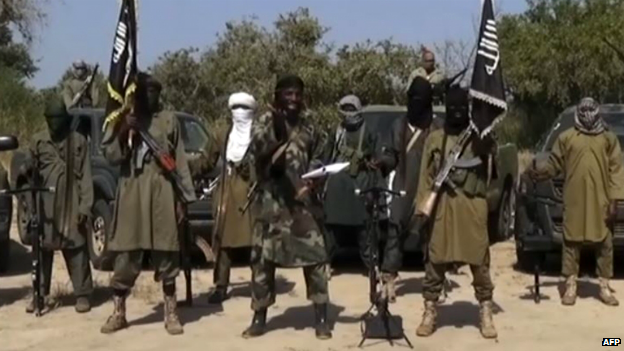
The latest Boko Haram video in which its leader Abubakar Shekau denies any ceasefire talks between his group and Nigerian officials will come as a huge embarrassment to the government, reports the BBC's Africa Security Correspondent Tomi Oladipo.
The militant leader has directly contradicted government claims that the ceasefire would set the stage for the release of more than 200 schoolgirls abducted in April from Chibok town.
With the presidential elections just three months away, any chances of having a peaceful vote in north-eastern Nigeria are unlikely.
Analysts now suggest it might be time to rethink any diplomatic solution to the crisis and instead concentrate efforts on restoring the stability of the nation.
'Married off'
Shekau's defiance in the video did not come as a surprise to many.
In fact it was the government's announcement of a truce that provoked scepticism among Nigerians, even if some of the Chibok community said they were "cautiously optimistic".
Much of the handling of the crisis over the last six months has hinged on securing the release of the schoolgirls.
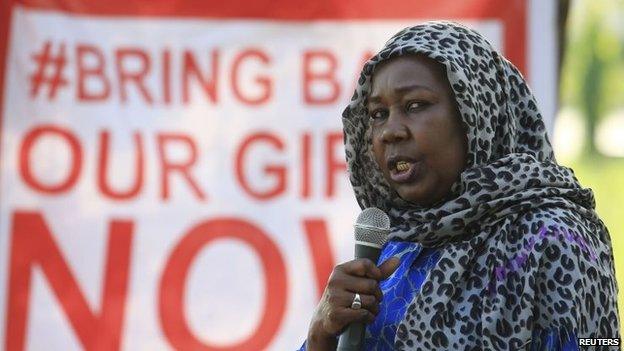
The chances of campaigners seeing an imminent release of the schoolgirls appear to be fading
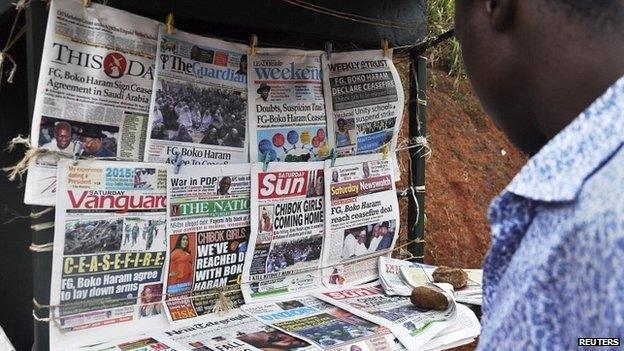
News of the government supposedly sealing a truce with Boko Haram recently made the front pages
While Shekau says the girls have now converted to Islam and been "married off", there might still be the possibility of a swap for Boko Haram members in custody of the government. The insurgent group has long demanded the release of its men from prison.
So far, attempts at dialogue have not led to any cessation of violence. Only a few weeks ago, Nigerian government officials seemed certain they had agreed a truce but Boko Haram militants and Nigerian security forces clashed shortly after the announcement.
'Mixed signals'
So where does the government go from here?
Veteran diplomat Bolaji Akinyemi suggests that the government needs to rethink its strategy.
"We can accept this latest [Boko Haram] video at face value that this group is not willing to talk," he says.
"The government needs to stop sending mixed signals about the possibilities and now consider that maybe the solution is a military one. Unfortunately we have to accept that the loss of lives is inevitable and maybe we need to prepare ourselves for that."
Mr Akinyemi was part of a presidential committee tasked to come up with recommendations for a solution to the insecurity.
One of its findings was that security agencies needed improved training and equipment to stand up to the Boko Haram challenge.

Who are Boko Haram?
Founded in 2002
Initially focused on opposing Western education - Boko Haram means "Western education is forbidden" in the Hausa language
Launched military operations in 2009 to create Islamic state
Thousands killed, mostly in north-eastern Nigeria - also attacked police and UN headquarters in capital, Abuja
Some three million people affected
Declared terrorist group by US in 2013

If any changes have since been made, they have not stopped Boko Haram on its territorial quest.
Nigeria's general elections are expected to be held in February and there is every indication that the process will be bloody if it goes ahead in the north-eastern states of Borno, Adamawa and Yobe, where Boko Haram has its strongholds.
It is also unlikely that civilians there will be convinced to cast their votes in a democratic system that is antithetical to Boko Haram's central objective - to instil its radical form of Islamic rule.
Nigerian journalist Ahmad Salkida - who has recently had rare access to the group - says that the sect believes its "brand of Sharia is superior to the [Nigerian] constitution".
Fleeing soldiers
It appears the government is now fighting not just for the territorial integrity of the nation but also for the very existence of the Nigerian state.
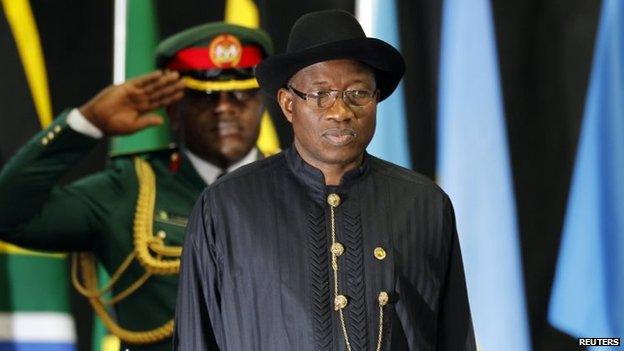
The government led by President Goodluck Jonathan is eager to reassert Nigeria's sovereignty
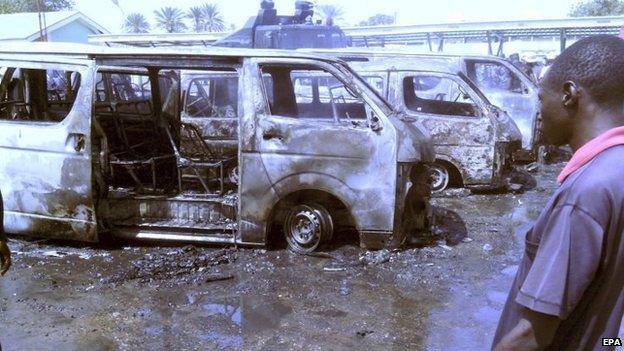
Attacks carried out by Boko Haram in recent months have left a trail of destruction across Nigeria
Mr Akinyemi thinks there are few other options. "Even if you ask Boko Haram to hold on to the territory they have, it would not restrain them."
The latest major town to fall to the militants is Mubi in Adamawa State.
Military sources say the soldiers there would have been well equipped to repel any rampaging Boko Haram fighters but, not for the first time, the soldiers fled alongside residents as the attackers arrived.
They left behind resources, including military hardware, that could sustain the insurgents for much longer. It is a trend that should deeply trouble the authorities.
A tenuous possibility is that the military has not gone on the offensive because of the ceasefire order, although a recent statement from the defence headquarters said that a "highly coordinated air bombardment is already yielding required results in the mission to repel the unwarranted attacks on citizens" in the north-east.
Desertions in the face of battle
Such teamwork between the air force and ground troops was successful when the military prevented Boko Haram from taking over Konduga, near Maiduguri, to public acclaim in September.
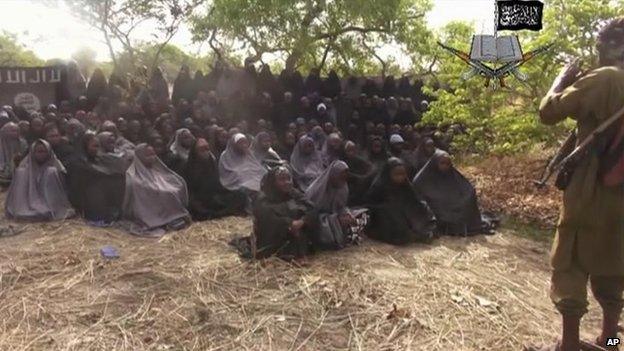
Boko Haram's denial that there have been any ceasefire talks between them and the government does not augur well for the kidnapped schoolgirls
The belief that Boko Haram informants have infiltrated certain army units appears to have damaged morale among soldiers on the frontline, who now fear that their own brave efforts could be wasted. Hence the common desertions in the face of battle.
"Any cases of infiltration, if any, would not be significant enough to undermine the combat efficiency of the military and its capacity to bring the military campaign to a successful conclusion," asserts Major Lancelot Anyanya (Retired), a security analyst.
"Where the issue is radicalisation, you have to look to fight long-term with arms and counter-ideology. Build up the military but also consider and address what drives people into these groups."
In the meantime Boko Haram has taken over several towns and seeks to control more.
The government, on the other hand, is hoping to reassert Nigeria's sovereignty. A new phase looms in this bloody conflict.